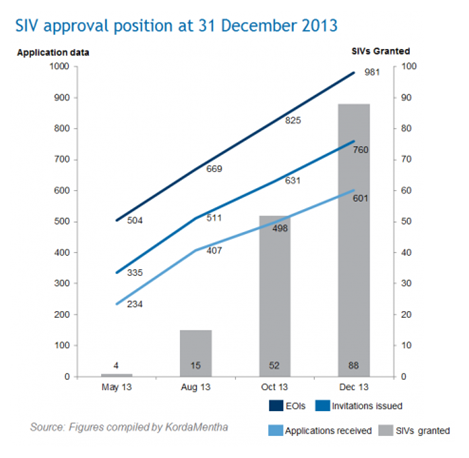Editor's Picks
The industrial relations battle is heating up and, it seems, even the drover's dog wants a say. This is one moment where the broad church of Business Spectator comes to the fore. I think we've featured more variations of the left and right sides of the argument than most. In the interests of impartiality I'm not making a call either way, and I'll let our commentators do the talking.
We'll start with Robert Gottliebsen, who has had his flag planted in the ground on this issue for a long time. Many of our commenters accuse Robert of union bashing and always taking the company's side against the worker. This is too simplistic an interpretation. Robert's view on SPC, and on the conditions in the construction sector, is not that wages are the problem but that the enterprise bargaining agreements place too much managerial control in the hands of union officials. Managing a business via committee will never work.
“Tony Abbott and Joe Hockey have made a series of separate courageous decisions. Now they have the chance to totally change Australia in a way not seen since Bob Hawke and Paul Keating,” he writes.
“Having created the environment for radical change in building and food management, Abbott and Hockey can spread that revolution to most of the manufacturing industry via motor. And, most importantly, it will then soon spread to mining.”
Rob Burgess believes that the poor SPCA worker is cannon fodder in this larger war to attack the union movement and that Australia is at risk of throwing a perfectly healthy baby (the food industry) out with the bathwater. The question is whether union leaders will recognise that some of these more militant agreements are giving the movement a bad name.
Enter Paul Howes: "Howes’ call for a ‘grand compact’, though vague at present, is the right call. Business leaders and unionists alike must shake off the habitual tendency to draw battle-lines and recognise the crisis bearing down upon Australia," Rob writes. "That crisis won’t be solved by the ‘see-saw’ of shifting from one IR system to another every time government changes. I think Tony Abbott, with his ‘weak’ promise to maintain the Fair Work Act until 2016 at least, has already recognised that. That leaves Bill Shorten with a lot of catching up to do before the 2016 election. That is if Paul Howes hasn’t taken his job by then..."
Dollar downer
Ideology will generate headlines for months to come but ultimately it's economic conditions that will have a real impact. The fact is that the economy has slowed and the investment cliff in mining looms. Higher than expected inflation figures mean the Reserve Bank is unlikely to help from a monetary perspective and the cushion from a falling dollar might not be as comfortable as expected, writes Alan Kohler.
“Will the governor get the jawbone out again and once again talk about it being uncomfortable? Unlikely. The problem is the December CPI at 0.8 per cent and annual inflation at 2.64 per cent. The fact that it was mainly health and education prices doesn’t matter. At the first sign of a blip in inflation, Australia’s central bank has gone AWOL from the currency war and left the nation’s exporters to their fate,” he says.
A new ideology?
Is the Government of the view that an entire citizenry should become more resilient? That's an interpretation from Michael Gawenda's article. A small coterie of Abbott's inner circle, led by Joe Hockey, is attempting to reshape the Liberal Party as champions of small government, self-reliance and 'private virtue' - a radical shift from its much 'wetter' history. And it's doing so at a time of great economic instability.
"The trouble with this end of entitlement ideology and the elevation of self-reliance, thrift and private virtue to self-evident truths is that at least since the Great Depression of the 1930s, there has been no government of the sort that Hockey envisages, not in Australia, not in the US, not in Britain or Europe," he writes.
Winged beasts
If the Government sticks to its 'minimal intervention' philosophy, Qantas can kiss goodbye any hope of getting financial support. Stephen Bartholomeusz is bemused by both Qantas and Virgin's willingness to pour money down the drain after Virgin warned it would post a pre-tax loss of $49 million.
"The torrents of red ink that began pouring through the airlines in the June half and which now appear to have swollen further in the December half pose an obvious question: Is this a sensible way to manage a duopoly?" he asks.
"With Virgin unlikely to voluntarily abandon its strategy of pushing up-market into Qantas’ stronghold while using Tiger Australia to attack Jetstar, and no prospect of Qantas voluntarily walking away from its commitment to a 65 per cent market share, however, there is no obvious way for rational commercial behaviour to emerge unless the scale and duration of the losses forces one or both to choose between a radical shift in strategy and ambition - or potential oblivion."
Most read
Australia is gripped by a global market vice, by Robert Gottliebsen
Most commented
A rogue Liberal spills the beans on SPCA, by Rob Burgess
What you probably didn’t read but should have
Facebook turns 10 but does it have a future?, by Suprathim Adhikari
Image of the week
Did you know there's one thing Australia could do to earn 500 million investment dollars today?
Approving the 601 applications pending for Significant Investment Visas (price tag $5 million and up) would unleash a wave of investment. To see where it is already going, click here.













